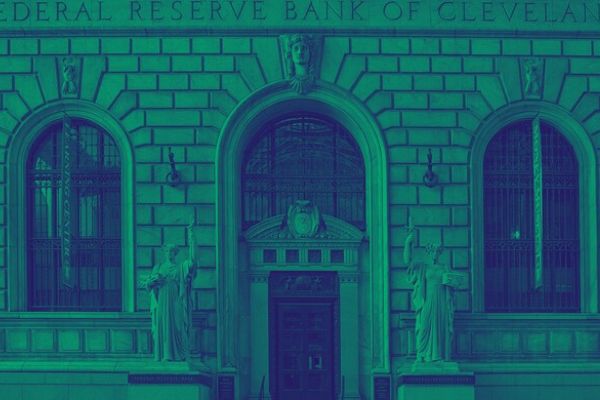According to a Reuters report, Governor Lael Brainard of the Federal Reserve said that the Federal Reserve was looking into various issues around digital currencies. This includes legal considerations around the potential of issuing a US central bank digital currency.
She made the remarks while speaking with Jonathan Levin, the deal of the business school at Stanford University in Palo Alto, CA. Her remarks by the governor suggest that the bank is more open to a Fed-coin than previously believed. During the conference, she said that with digitizing payments, there was the possibility of delivering greater convenience and value at a lower cost. However, she did not discuss the current economic outlook or interest rates.
Digital Currency Risk Assessment
The Governor did concede that there were risks with such a move. In particular, she reprised concerns that central bankers globally have expressed about digital currencies such as Facebook. The governor noted that some of the new players in this sector were outside the regulations that govern the financial system. As a result, some of the privately issued digital currencies could lead to concerns about illegal financial activity, financial instability, and privacy.
There has been a heated debate globally on how best to regulate the digital finance sector amongst central bankers. This is especially so concerning systems such as Bitcoin that allow near-instant payment processing. In June 2019, the Fed Chairman revealed the bank planned to launch a real-time payments system, and there were hints that it might involve a digital currency. It is currently reviewing 200 comment letters that it received from various stakeholders in the sector.
The governor revealed that the Fed was actively researching and experimenting with the distributed ledger as well as the potential use cases for digital currencies. She revealed that they were even looking into the possibility of issuing a CBDC. There are numerous central banks globally that are researching a CBDC, according to a study by the Bank of International Settlements. China is thus far the leader in this field.
The Reuter report noted that about two years ago, Brainard had said there was no need for such a coin at a San Francisco conference. However, those comments were made before the unveiling of the Facebook Libra project. Since Facebook Libra was announced, various Fed officials have raised concerns about privacy and consumer protection that could arise.
Federal Reserve Payments
The Federal Reserve has been looking into faster payments since 2013. In a 2015 paper, they specifically outlined what they needed in a futuristic payments model. Some of key topics included:
- Speed – ability to settle transactions rapidly
- Security – system that can keep up with evolving threats in the industry
- Efficiency – offer enhanced experiences to consumers and other entities ( businesses ).
- International – better solutions for Americans to send cost-effective and quick cross-border payments
- Collaboration – system that is essentially embraced by a handful of payment participants
At the time, the paper also outlined strategies they could take to ultimately transform the U.S Payment System. Leaning on “digital value transfer” was one of the solutions at the time that ended up being passed on according to the paper. With about 5 years in the books since this report, it seems as if the Federal Reserve is seeing the magnitude of market potential for digital value transfer, and is potentially bypassing the other options. The strategies the Federal Reserve outlined in 2015 were:
- “Design options that evolve traditional payments infrastructures (e.g., ACH, Cards, Wire, Check)”
- “Design options that leverage emerging payment infrastructure (e.g., telecom, distributed architecture using common messaging protocols and standards over public IP networks, digital value transfer vehicle.”
- “Design options that require the building of completely new payments infrastructure (e.g., new infrastructure for (near) real-time payments, potentially leveraging technical components of legacy platforms, new network switch for linking limited participation networks.”
With reports now on the Federal Reserve expressing additional interest in “FedCoin”, it appears they are building out this solution with a mixture of option 2 and 3. The last 5 years could have very well been failures with the first option of just evolving traditional payments ( the most conservative option ), especially with FinTech making a massive push the last few years..
Facebook Libra Projects Causes Jolt
At the recent conference, the governor admitted that Libra had jolted the Fed into action around issues concerning digital currencies. She said that they were working with other central banks to try to understand central bank digital currencies.
The governor said that with more countries looking into the issuance of digital currencies, they wanted to ensure the Fed remained ahead when it came to research and policy development. She added that research was needed in the US to determine where digital currencies would make payments simpler or safer. Additionally, they needed to investigate the risk of bank runs that could come with the issuance of a central bank digital currency.
Image Source: Pixabay
Notice: Information contained herein is not and should not be construed as an offer, solicitation, or recommendation to buy or sell securities. The information has been obtained from sources we believe to be reliable; however no guarantee is made or implied with respect to its accuracy, timeliness, or completeness. Authors may own the crypto currency they discuss. The information and content are subject to change without notice. Visionary Financial and its affiliates do not provide investment, tax, legal or accounting advice. This material has been prepared for informational purposes only and is the opinion of the author, and is not intended to provide, and should not be relied on for, investment, tax, legal, accounting advice. You should consult your own investment, tax, legal and accounting advisors before engaging in any transaction. All content published by Visionary Financial is not an endorsement whatsoever. Visionary Financial was not compensated to submit this article Please also visit our Privacy policy; disclaimer; and terms and conditions page for further information.

